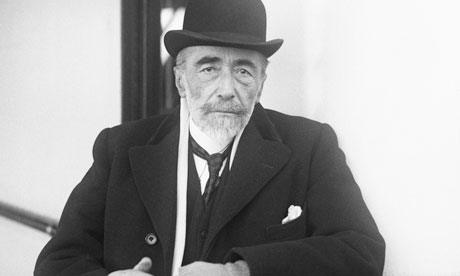
In his introduction to the forthcoming anthology of short stories, European Fiction, 2011, Colum McCann wonders why, when there is so much hype and hysteria over the search for the Great American Novel (file under: Franzen furore), there is not the same fervid interest in the idea of a Great European Novel.
On these shores, it's easy to see why. We have a dearth of literature in translation compared with the countries of mainland Europe. If it wasn't for adventurous publishers like Portobello Books, the Dalkey Archive Press, and Serpent's Tail, we wouldn't have any at all. Most of my favourite writers are from overseas, and yet I can read, at most, only one or two novels in English from their oeuvre, whereas in Germany or Poland, I would be able to pick up the whole lot. In my local Waterstone's in Manchester, the Literature in Translation section has recently been replaced by a few shelves of greetings cards and stationery. Ok, it's an unwelcome sign of the times, because publishers don't want to take the risk on 'hard sell' foreign fiction, but how else are we to discover a sense of ourselves within a European context? How else to find our place in the concept of Europa which is currently informing much of the cultured debate across the continent, especially among EU accession countries? Or should we simply pull up anchor, settle down in front of our screens, and let these benighted isles float towards the US?
In the Guardian Review last Saturday, Michel Faber decried the British literary scene as a "community of nerdy parochialists" for acknowledging only a tiny proportion of fiction from overseas. He was reviewing a novel by Jenny Erpenbeck, a very talented German writer, and his tirade is entirely justified. What's more, there are other fine young German writers – such as Tilman Rammstedt (who won the Ingeborg Bachmann prize in 2008) – who can't even get into print in English.
I'm writing this from the second Conrad festival in Krakow, Poland. Perhaps Joseph Conrad is a good example of a European writer. In these days of migration and resettlement, Conrad can represent this fluidity between countries, between languages. Herta Müller, who is at the festival, can do so, too. Born in Romania, she lives in Berlin, as does the Hungarian writer, László Krasznahorkai, one of the (in the UK, unsung) masters of contemporary European fiction (The Melancholy of Resistance, War and War). What do we know of their work from the safe and soporific shores of dear old Blighty? And if our era really is one of movement and accessibility, how come we English readers are not being allowed to read our way around Europe?
Perhaps it's because of one of the overriding themes of European fiction: resistance. Not just to totalitarianism and other despotic regimes, but also to the extirpation of individualism that the media-marketing machine so desires. A safe UK novel is always going to sell better than a subversive European one, or so they would like us to believe.
So the question might not be "Does European literature exist?" but rather "Does a European reader exist?"
And only you can answer that.

